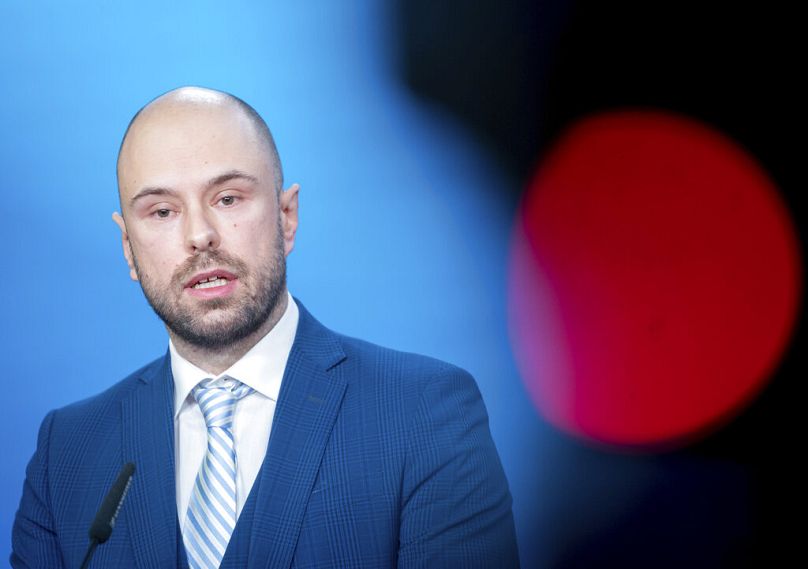Since January, Montenegro has allowed unrestricted international arrivals - one of only a handful of countries worldwide to do so. But since January 25, that excludes arrivals from Great Britain.
Montenegro’s new government aims to become a ‘corona-safe’ travel destination in time for the 2021 tourist season, according to the country’s new foreign minister, Djordje Radulovic.
 ADVERTISEMENT
ADVERTISEMENT
 ADVERTISEMENT
ADVERTISEMENT
Montenegro shut its borders to tourists in March 2020 after its first case of COVID-19 was discovered, dealing a heavy blow to its economy. In May, Montenegro had zero registered cases but by November it was the second-worst hit country in Europe with more than 30,000.
It continued to allow foreign tourists - who flock to Montenegro’s beaches in summer and ski resorts in winter - but only if they could produce a negative test and with two-week quarantine in place for those who couldn’t. Tourist arrivals during 2020 fell by nearly 80%.
But in January 2021, the country’s new government - which was elected in August and took power in December - lifted the requirement for a negative test result, becoming one of only a handful of countries worldwide to allow unrestricted travel during the COVID-19 pandemic.
As of January 25, British nationals are not included in the new regulations due to the new strain of coronavirus that has been discovered in the country.
'Hotspots'
Speaking to Euronews, Radulovic said that last year’s measures were too drastic, and decimated the tourist industry, which makes up 25% of Montenegro’s GDP. “[They] shut the whole country. Nobody was able to get in or out. It demolished our economy.”
Radulovic said that with an active vaccination campaign in the coming weeks, Montenegro could be “corona-safe” before the start of the summer season. While the country will still have to battle the virus, tourist areas could be protected to enable foreign visitors to visit, he said.
“We will not totally eradicate coronavirus, but we will have some small, small hotspots under control, which means that tourists can come from Great Britain, Germany, France, Russia - you name it - will be safe and sound in our country [and] totally free to enjoy their vacation,” he said.
But Radulovic also told Euronews that Montenegro is yet to receive a single dose of COVID-19 vaccine, despite requests to European Union officials. He blames the former government, who between August and December “did not lift a finger” in trying to secure supplies.
“We are 600,000 people which, for the EU, is close to nothing [...]. We need a couple of thousand vaccines - five thousand, ten thousand - just to start vaccinating the most vulnerable parts of society and medical workers, which have been depleted fighting corona,” he said.
In the absence of EU support, Montenegro has begun negotiating with a Chinese company about purchasing a COVID-19 vaccine developed in China. It was, he said, “a last resort [...]. We have to protect our population.”
It is an issue faced by a number of other nations worldwide that do not have the financial or geopolitical clout as the US or the nations of Western Europe.
“I understand that there is a huge shortage on a global scale,” said Radulovic, “I think 172 countries are in the queue.”
Radulovic is a career diplomat and part of the country’s new coalition government, which in August overturned almost 30-years of rule by the Democratic Party of Socialists, headed by Milo Djukanovic, who stays on as president until 2023.
It has a majority of just one MP, with 41 representatives in the country’s 80-member parliament and swept to power on a campaign of opposition to a law that would have forced the country’s powerful Serbian Orthodox Church to register their vast landholdings.
The result provoked fears internationally that Montenegro - which joined NATO in 2007 and was on a path towards European Union membership - would move away from Europe and closer to Belgrade and Moscow, but Radulovic denied that his government wants to change course.
“80 per cent of our population said that they want to be a member of the EU [...],” he said. “We are going to keep we will keep pursuing our [future] in the EU, where our citizens want to go.”
Radulovic recently returned from his first international trip as foreign minister to Germany, where he met German Foreign Minister Heiko Maas.











